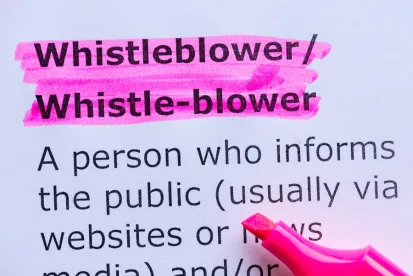The Ninth Circuit’s recent opinion in Frost v. BNSF Railway Co. is an important win for whistleblowers in that it rejects employers’ attempts to impose a heightened causation burden on whistleblowers and to weaken whistleblower protections laws by adding an “honest belief” defense. Frost adheres to the plain meaning of the FRSA’s whistleblower protection provision and clarifies that whistleblowers can prevail merely by showing that protected conduct played any role in the decision to take an adverse action.
Michael Frost’s FRSA Whistleblower Retaliation Suit
Frost brought suit under the whistleblower protection provision of the FRSA alleging that BNSF fired him for filing an injury report. BNSF, however, claimed that it terminated Frost’s employment for repeated safety violations. In particular, Frost was disciplined twice for violating a rule barring workers from approaching—or “fouling”—a track unless they have the proper authorization and a work-related reason to be near the tracks.
In one incident, Frost was nearly struck by an oncoming train while repairing a section of track near Brimstone, Montana. Frost’s supervisor had released track authority, which prevents trains from passing on a section of track during repairs, but failed to inform Frost or the rest of the work crew. Frost believed that the repair equipment was not being anchored properly so he moved toward the main line track to get a better view. At that point, a train traveling approximately 60 miles per hour passed by on the main line, narrowly missing him.
Following the incident, Frost was diagnosed with “PTSD following a traumatic incident” and reported the diagnosis to BNSF. A few days later, BNSF charged Frost with violating safety rules, but did not discipline other employees who were also standing near the oncoming train that had not reported an injury.
Shortly after Frost was disciplined for fouling the track, he violated a BNSF safety rule by parking his truck adjacent to a railroad crossing with the back end of the truck overhanging the track. Frost’s supervisor determined that Frost did not appear to have secured track authority before parking his truck, thereby fouling the track. BNSF claimed that it decided to fire Frost due to the seriousness of the violation and the fact that it occurred so soon after the first disciplinary incident.
Frost tried his FRSA whistleblower retaliation case before a jury, and the railroad prevailed. Frost appealed on the ground that the judge gave the jury erroneous instructions.
Employer’s Honest Belief Is Not a Defense
At trial, the judge instructed the jury that BNSF could not be held liable for retaliation if it had an
“honest belief” that Frost broke the company’s safety rules by approaching, or “fouling,” a track without authorization. The Ninth Circuit held that this instruction was erroneous because it imposed a higher burden of proof on Frost than the “contributing factor” causation standard set forth in the statute:
Frost needed to prove only that his protected conduct (filing an injury report and an OSHA complaint) was a contributing factor to his ultimate termination. To rebut Frost’s case, BNSF had to prove that the same discipline would have been imposed with or without the injury report or the OSHA complaint . . .This necessarily means it was possible for Frost to show retaliation even if BNSF had an honestly-held, justified belief that he fouled the track. Frost was not required to show that his injury report was the only reason or that no other factors influenced BNSF’s decision to terminate him. Nor does the instruction’s use of “based on” foreclose the possibility that an impermissible factor or consideration contributed to the decision to discipline Frost.
Moreover, the honest belief instruction may have encouraged the jury to skirt the actual issue and instead focus on whether BNSF was justified in discipling Frost for a safety violation instead of whether his protected whistleblowing affected in any way the decision to fire him.
FRSA Whistleblower Retaliation Law Does Not Require Proof of Retaliatory Intent
The panel also rejected BNSF’s contention that the FRSA requires proof of discriminatory animus, separate from and beyond the required showing that the whistleblower’s protected conduct was a contributing factor in the adverse employment action:
What BNSF misses is that the only proof of discriminatory intent that a plaintiff is required to show is that his or her protected activity was a “contributing factor” in the resulting adverse employment action. Showing that an employer acted in retaliation for protected activity is the required showing of intentional discrimination; there is no requirement that FRSA plaintiffs separately prove discriminatory intent.
In other words, Frost can prevail by showing that his protected conduct played a part in the decision to fire him. Frost need not demonstrate that BNSF fired him solely because of his protected conduct.
Implications for Whistleblowers
Frost is significant in that it rejects BNSF’s attempt to alter the generous causation standard in the FRSA that is intended to prove robust protection for whistleblowers. Requiring a whistleblower to prove retaliatory animus and allowing an employer to avoid accountability for retaliation merely by showing that it honestly believed that the whistleblower violated a rule fundamentally alters the “contributing factor” causation standard. As described by the Department of Labor Administrative Review Board in its seminal Palmer decision, contributing factor causation is a “broad and forgiving” burden: “‘Any’ factor really means any factor. It need not be ‘significant, motivating, substantial or predominant’—it just needs to be a factor. The protected activity need only play some role, and even an ‘[in]significant’ or ‘[in]substantial’ role suffices.” Palmer v. Canadian National Railway, ARB No. 16-035, ALJ No. 2014-FRS-154 (ARB Sept. 30, 2016) (en banc). One of the reasons for this favorable causation standard is that employees are at a severe disadvantage when it comes to accessing relevant evidence. Imposing a more onerous causation standard on whistleblowers would chill whistleblowers from disclosing threats to public health and safety and other wrongdoing. Therefore, it will be important for whistleblower advocates to guard against efforts to alter the “contributing factor” causation standard.




 />i
/>i

